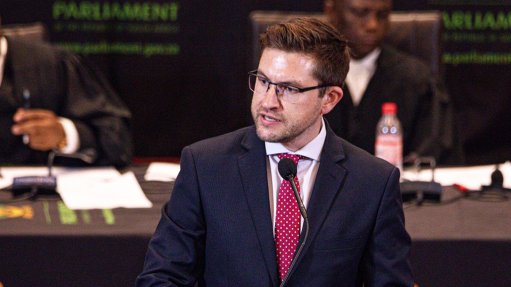
Tshwane mayor Cilliers Brink
The most important thing for the City of Tshwane is to rescue it from financial distress, and key to this mission is maintaining energy independence, executive mayor Cilliers Brink emphasised in a keynote address during the city’s Mayoral Energy Sector Roundtable, held in Pretoria on October 31.
He pointed out that there needed to be considerable progress in energy independence to achieve financial rescue, and this required one integrated project. He highlighted that the city had appointed an Energy Task Team this year, which was considering a mix of energy solutions for Tshwane to mitigate loadshedding and reduce its reliance on Eskom.
This includes initiatives like the approval in September of the public participation report for the proposed 40-year lease of the Rooiwal and Pretoria West power stations in terms of Regulation 35 of the Municipal Asset Transfer Regulations.
Brink highlighted that the city had the “ambitious” target of achieving 1 000 MW independent of State-owned utility Eskom over the next three years, and averred that while this would be challenging, it was achievable.
He said this was necessary to maintain a measure of competitiveness compared with other cities, such as Cape Town, which were much further along in this process.
He also mentioned that securing consistent power was crucial for maintaining industrialisation, in which the city is a key player, and to continue to attract jobs and investment to the region.
Brink also referenced the city’s climate action plan, noting that despite the goal of reducing emissions and engendering sustainability, there would still be a continued investment in coal as this would remain a part of the country’s energy mix for the foreseeable future.
This would be reduced over time, with investments and procurement of more sustainable energy, he pointed out.
Brink said that Pretoria West was the ideal candidate for more sustainable energy and noted that a request for proposals will soon be issued to procure from independent power producers (IPPs).
He also emphasised that the city had a responsibility to offset carbon emissions to the greatest extent possible. One such endeavour announced by Brink on the day was a tree planting programme, called ‘Let us Plant’.
Brink added that this programme would have other benefits, including mitigating heat and generating green jobs.
Touching on Gauteng’s Energy Response Plan, Gauteng Department of Cooperative Governance and Traditional Affairs deputy director-general Khululekile Mase pointed out that the province had initiated various interventions to address the current shortages in response to the energy crisis, working with municipalities, national government, Eskom and other partners.
He noted that these would align to the Just Energy Transition Plan as well as the UN’s Sustainable Development Goals, to proactively address imperatives linked to climate change.
Mase highlighted that there were a range of technology solutions being pursued, such as smart meters.
He pointed out that municipalities needed to develop appropriate wheeling frameworks to unlock more megawatts for the province, with multiple IPP projects across the country at various stages of development.